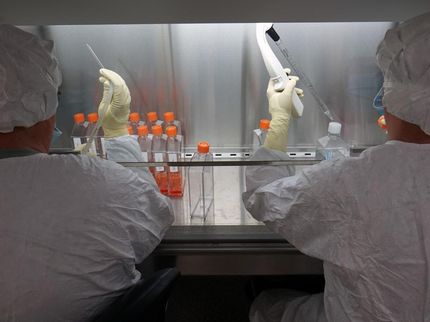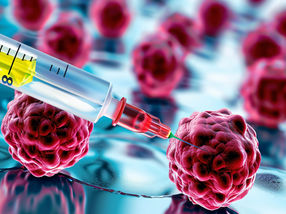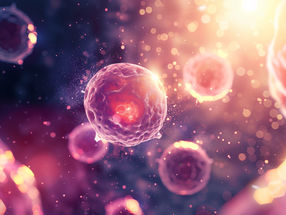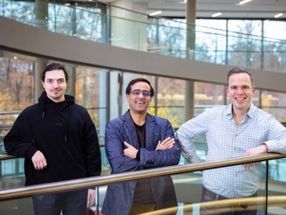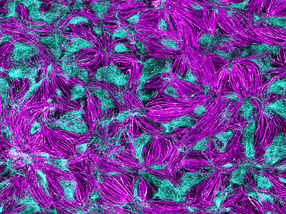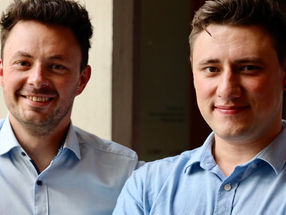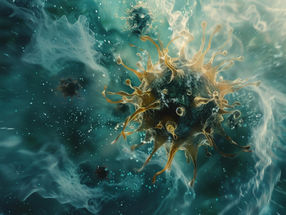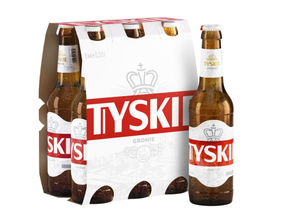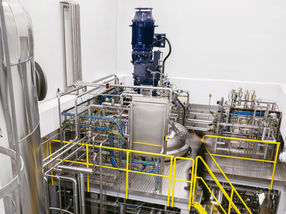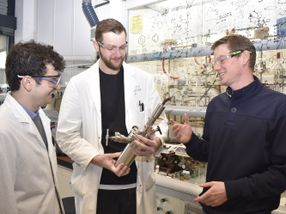VaxGen, Inc. announced today that the U.S.
food and Drug Administration has cleared the Investigational New Drug (IND) application for its candidate
anthrax vaccine.
The effective IND allows VaxGen to begin clinical development of the investigational vaccine with the goal of producing an emergency stockpile for the U.S. government and licensing the product for commercial sales. The next step in this process will be the initiation of a Phase I human clinical trial involving approximately 100 volunteers at four leading medical centers: Baylor College of
medicine in Houston,
Emory University School of Medicine in Atlanta,
Johns Hopkins University in Baltimore and
Saint Louis University Health Sciences Center.
The trial will evaluate the safety and
immunogenicity of VaxGen's candidate vaccine compared to those of the existing licensed anthrax vaccine. The vaccine candidate's efficacy will be established by comparing the immune responses in humans to those shown to protect animals from inhalation of anthrax spores.
The Phase I trial is being funded through VaxGen's contract, N01-AI-25494, with the National Institute of Allergy and Infectious Disease (NIAID), a component of the National Institutes of Health. The purpose of the project is to develop an anthrax vaccine that is safe in humans, efficacious in animal inhalation challenge studies and requires no more than three injections, compared to the six injections required with the existing licensed anthrax vaccine. The contract calls for the vaccine to be made from recombinant Protective Antigen (rPA), a protein known to induce
antibodies that neutralize anthrax toxins. Achieving full licensure will depend on the results of current and planned studies designed to satisfy the standard requirements for
FDA vaccine licensure, with the exception that the demonstration of efficacy will be in animals according to the FDA's "Animal Rule," published in the Federal Register on May 31, 2002.
"The ability to begin Phase I
clinical trials advances our ultimate goal of supplying the next-generation anthrax vaccine to the U.S. and foreign governments, as well as private markets," said Lance K. Gordon, Ph.D., VaxGen's chief executive officer. "Since winning our anthrax contract, VaxGen has overseen the manufacture of more than 2,000 doses of vaccine available for clinical studies, completed all required pre-IND development and cleared an IND. This is a remarkable record of achievement that we believe demonstrates VaxGen's ability to manage complex projects under tight deadlines and to satisfy the regulatory and contract requirements of the program."
VaxGen expects the U.S. government to award two additional anthrax vaccine contracts later this year.
On May 23, NIAID issued a request for proposals (RFP DMID-03-29) for advanced development of an rPA anthrax vaccine candidate. Deliverables under this new contract are to include the manufacture of 3-to-5 million doses as well as much of the preclinical and clinical testing necessary for submission of a license application to the FDA. VaxGen is already required under its existing NIAID contract to submit a plan for manufacturing 25 million doses for use in the case of an emergency under an active IND.
VaxGen expects that the Department of Health and Human
services and/or the Department of Homeland Defense will issue a separate contract for a stockpile of 25 million doses.
VaxGen intends to produce the vaccine candidate at its manufacturing facility in South San Francisco if it wins the advanced-development contract and/or the stockpile contract.
VaxGen's anthrax vaccine candidate is based on the pioneering work of the U.S. Army Medical Research Institute of
infectious diseases (USAMRIID), and is being developed through collaboration with Battelle Memorial Institute, Columbus, Ohio. The vaccine combines the potential safety benefits of a product made through modern recombinant technology with demonstrated efficacy in animal models. Made through
genetic engineering, the vaccine candidate is composed of an alum adjuvant and a purified protein (rPA) designed to induce antibodies that neutralize anthrax toxins. The vaccine candidate cannot cause anthrax infection.

